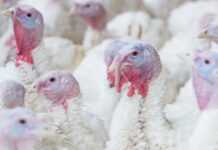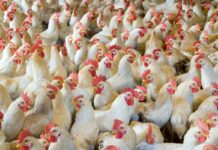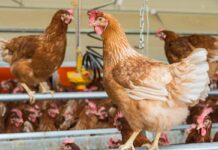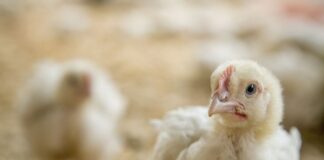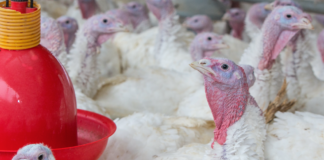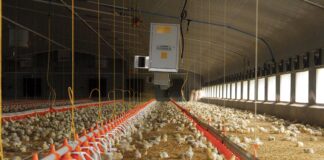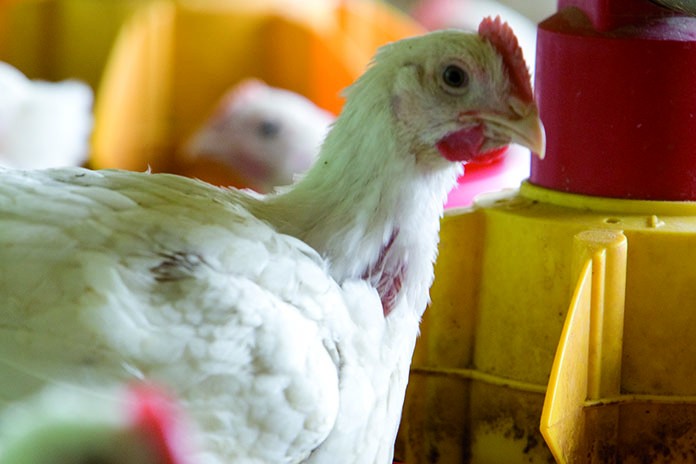
Phosphorus (P) is essential for all forms of life. Dietary P content either in excess of, or below requirements may adversely affect broiler performance. The P requirement of broilers has been the subject of numerous investigations. However, the requirement for this nutrient has not been adequately established; in part, due to its interactions with calcium and vitamin D. Previous work by the authors showed the P requirement of broilers is lower than NRC (1994) recommendations.
The current study investigated the growth response of Ross 308 male broilers to graded levels of dietary available phosphorus (AvP) and total Ca from day 1 to 21 post-hatch housed in floor pens. The experimental mash diets, based on wheat and sorghum, were formulated to contain 2.0, 2.5 and 3.0 g/kg AvP; each with 3.5, 4.5, 5.5 and 6.5 g/kg total Ca. All other nutrients met the requirements of birds (NRC, 1994). Phytase (Axtra PHY 10,000 TPT at 0.05 g/kg, Feedworks, Australia) was supplemented to all diets.
Each diet was fed to 5 pens with 10 birds per pen; Starter diet from day 1 to 14 and Grower diet from day 15 to 21. Live weight and feed intake were measured weekly and feed conversion ratios (FCR) were calculated.
Birds fed the diet containing 2.0 g/kg AvP and 4.5 g/kg total Ca had higher (P<0.05) live weight than birds consuming the same AvP level with other Ca levels at day 21. There were no significant differences in live weight between the other Ca levels with 2.0 g/kg AP.
For AvP concentrations of 2.5 and 3.0 g/kg, live weight numerically increased as dietary total Ca increased, (P = 0.094 and P = 0.217, respectively). Broilers fed diets containing 3.5 g/kg total Ca had poorer growth rate (P = 0.011) and FCR (P = 0.047) than those fed the higher levels of Ca regardless of AvP levels in the diets. There were no significant differences in feed intake among all treatment groups.
The results show that broilers fed diets containing of 2.0 g/kg AvP and 4.5 g/kg total Ca with supplemental phytase had superior growth performance and FCR at day 21. Therefore the poultry industry should consider reducing the concentrations of both AP and Ca in broiler diets from day 1 to 21.
Acknowledgement: This research was funded by RIRDC Chicken Meat program


